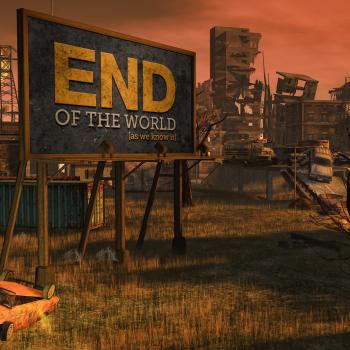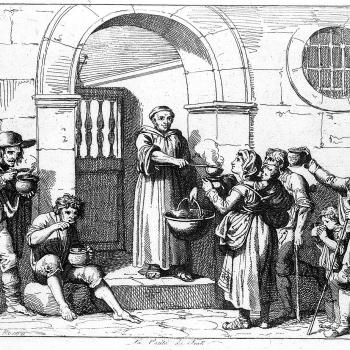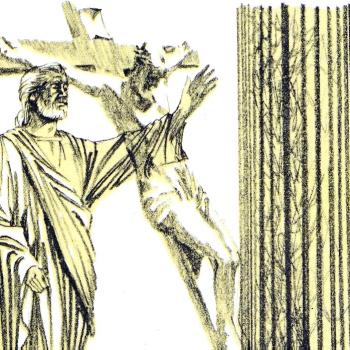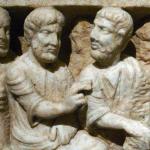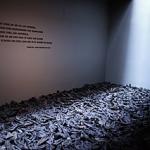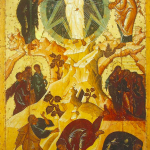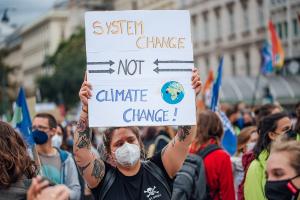
A poor man or woman concerned about climate change might find their own personal situation makes it difficult for them to do much to help deal with the problem. Indeed, they might even be forced, thanks to their context, to do things which will contribute to the problem, such as if they are poor and can only afford an old, used car which is a gas guzzler. They might desire to own a better vehicle, and would get one if they could, but since they cannot, they are not hypocrites for buying a used car and using it. Systematic structures of sin can impose upon people all kinds of limits to their freedom, which is why, if someone is forced to act in a way contrary to their own conscience, they might not be culpable for their actions. That is, if someone is compelled by an external force, such as torture or threats to their loved ones, to do or say something they would not ordinarily say or do, indeed, which they would oppose saying or doing, they usually are not held culpable if they give in to such demands (but they might be deemed heroic if they do not and willingly suffer, if not die, resisting them). The church has long understood this truth, which is why it judges actions, not just on the objective level, but subjectively as well, sometimes granting dispensations to those who would otherwise feel troubled by not being able to follow what they believe is their moral obligation. The church resists any legalism which is unwilling to grant dispensation or mercy to those who find themselves facing an impossible situation where all possible outcomes will lead to some evil. St. Cyril of Alexandria used Moses and the dispensation Moses gave allowing divorce as an example of this truth:
What Moses permitted was a dispensation. Since fornication is a lesser evil than murder, he permitted them to divorce their wives and take others lest they should be led to commit murder. That is, he permitted a lesser evil in order that a greater evil might be avoided. [1]
Climate change is real. Everyone is affected by it. Everyone can and should do their part to deal with it. But not everyone can and will be able to do the same thing. Indeed, the systematic structure of sin surrounding society often limits what is possible, and until that structure is changed or eliminated, most of us will not be free to do all we could wish to do to counter climate change. What is important is that we do what we can, both in our personal lives as well as in relation to our advocacy to change the system we find ourselves living in. It is important we promote those changes in society which are necessary to combat and eliminate the structures of sin which promote climate change. That is, fighting climate change requires us to challenge and change society on the macro level more than on the micro level, as Pope Francis indicated:
I ask everyone to accompany this pilgrimage of reconciliation with the world that is our home and to help make it more beautiful, because that commitment has to do with our personal dignity and highest values. At the same time, I cannot deny that it is necessary to be honest and recognize that the most effective solutions will not come from individual efforts alone, but above all from major political decisions on the national and international level. [2]
Of course, this is not to say what we can do on the personal level will not help. It can, which is why we must not ignore doing what we can, recognizing our limitations so that we do not despair when we not only cannot do as much as we like. Even if what we do is a little, when it is added to what little everyone else can do, we will find that it will help make for a significant change:
Nonetheless, every little bit helps, and avoiding an increase of a tenth of a degree in the global temperature would already suffice to alleviate some suffering for many people. Yet what is important is something less quantitative: the need to realize that there are no lasting changes without cultural changes, without a maturing of lifestyles and convictions within societies, and there are no cultural changes without personal changes. [3]
The world we live in is important. It was created by God as good, and we must work to promote and defend that good. Rejecting that good, denying it, indeed, hindering it, is a sin. As all sin can and will cause us spiritual trouble, it is important to recognize what we do in the world, what we do to it, connects with our spiritual development and therefore our salvation:
The connection between man’s ethos and the life and truth of the world has specific consequences in the way Christians confront and experience their use of the world, the production and consumption of material goods, technology, economics and political activity. It is not possible to participate in the life of the Church and to despise material reality or remain indifferent to it, to consider that man’s salvation bears no relation to matter and the use of the world. [4]
Those Christians who think climate change should not be the church’s concern because they think it is not a salvation issue show how little they understand salvation or what Christ expects of us. Them seem to have a rather Gnostic view of reality, one where matter, and therefore, the physical world around them is deemed unimportant. The incarnation reveals the opposite. Christ took on material form, elevating the value of the material world. Christ’s resurrection from the dead and ascension into heaven, likewise, reveals God’s interest in the world and its physical matter, as he did not discard his body in order to take his proper place in the kingdom of God.
Christians must not remain indifferent to the world. Christians must recognize they are called to protect and preserve it. Ignoring that obligation, they risk turning themselves away from God. But, as God is merciful even as God is just, God will be merciful to those who seek to do good, who do what they can to promote the greater good, but find themselves stuck in structures of sin which limit their personal ability to do such good. Systematic structures of sin can make it so that all the options available to a particular person contain some corruption of the good, so that, as the Catechism of the Catholic Church suggests, communal or social sin can make its victims engage in the very evil which has made them victims:
1869 Thus sin makes men accomplices of one another and causes concupiscence, violence, and injustice to reign among them. Sins give rise to social situations and institutions that are contrary to the divine goodness. “Structures of sin” are the expression and effect of personal sins. They lead their victims to do evil in their turn. In an analogous sense, they constitute a “social sin.”
Many of those who promote climate change awareness, and the need to change society to halt it and reverse its effects, are unable to do as much on a personal level as they would like. This does not make them hypocrites (as many of their critics try to suggest, using an ad hominem to disregard their message). If they work to change the system, and the systematic structure of sin put in place by the system, they will be doing far more than if they merely focused on their personal lives and what they could do on a personal level. Changing the system, dealing with the macro problem, is what is important, and as such, it is this kind of advocacy which is needed:
Our world has become so multipolar and at the same time so complex that a different framework for effective cooperation is required. It is not enough to think only of balances of power but also of the need to provide a response to new problems and to react with global mechanisms to the environmental, public health, cultural and social challenges, especially in order to consolidate respect for the most elementary human rights, social rights and the protection of our common home. It is a matter of establishing global and effective rules that can permit “providing for” this global safeguarding.[5]
It is important to recognize the reality of climate change. Everyone in the world should do what they can to deal with the problem. Not everyone will be as free to deal with it as others. Many of those who are the most affected by climate change, the poor, will also be the ones who have the least power to deal with it on their personal level. They are not to be blamed for what they cannot do. They are not to be derided as hypocrites. They are to be treated as victims, making sure no victim blaming is done to ignore the problem.
[1] Robert of Melun, “Questions on the Divine Page,” in Interpretation of Scripture: Practice. Trans. Franklin T. Harkins. Ed. Frans van Leiere and Franklin T. Harkins (Turnhout, Belgium: Brepols, 2015), 329
[2] Pope Francis, Laudate Deum. Vatican translation. ¶69.
[3] Pope Francis, Laudate Deum, ¶70.
[4] Christos Yannaras, The Freedom of Morality. Trans. Elizabeth Briere (Crestwood, NY: St. Vladimir’s Seminary Press, 1984), 86.
[5] Pope Francis, Laudate Deum, ¶42.
Stay in touch! Like A Little Bit of Nothing on Facebook.
If you liked what you read, please consider sharing it with your friends and family!
N.B.: While I read comments to moderate them, I rarely respond to them. If I don’t respond to your comment directly, don’t assume I am unthankful for it. I appreciate it. But I want readers to feel free to ask questions, and hopefully, dialogue with each other. I have shared what I wanted to say, though some responses will get a brief reply by me, or, if I find it interesting and something I can engage fully, as the foundation for another post. I have had many posts inspired or improved upon thanks to my readers.








